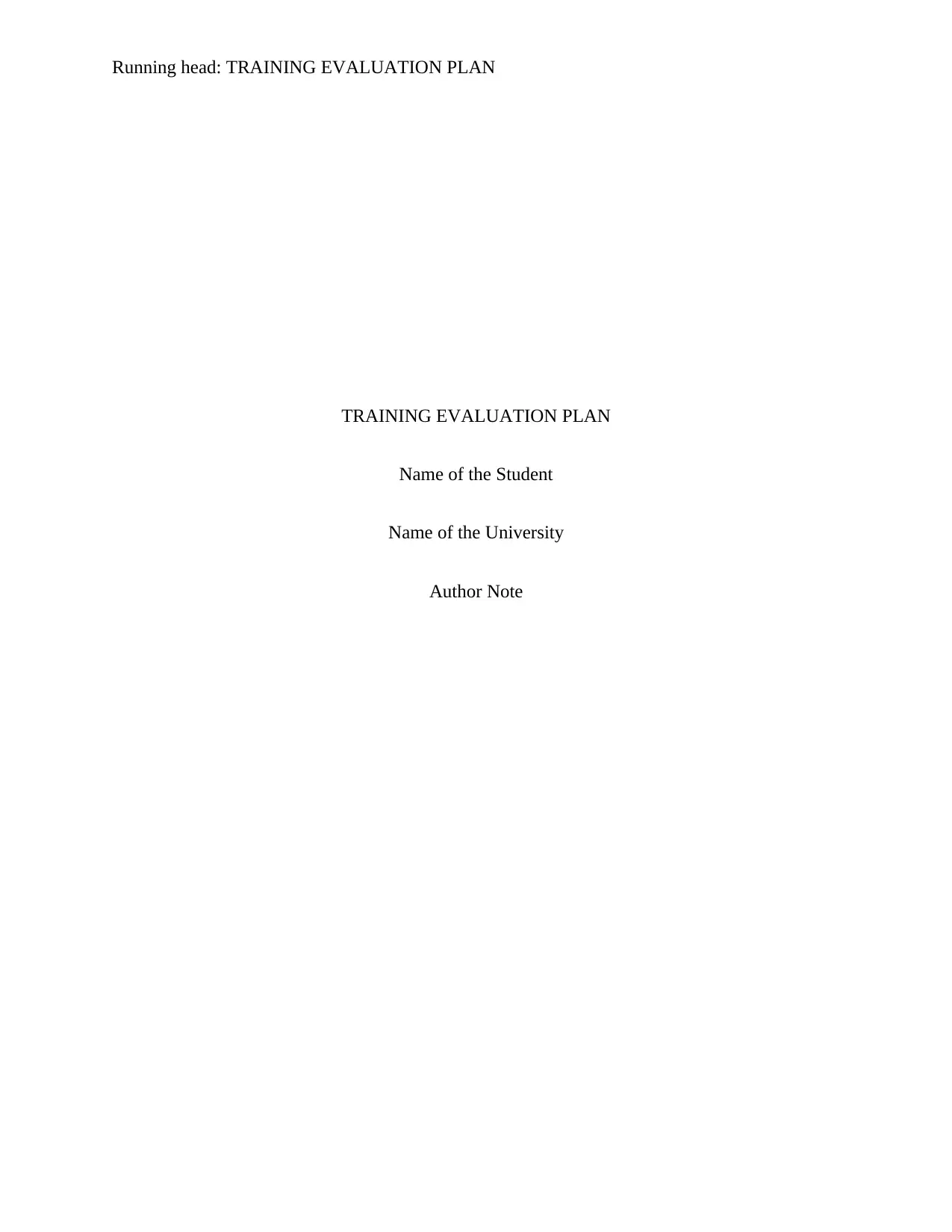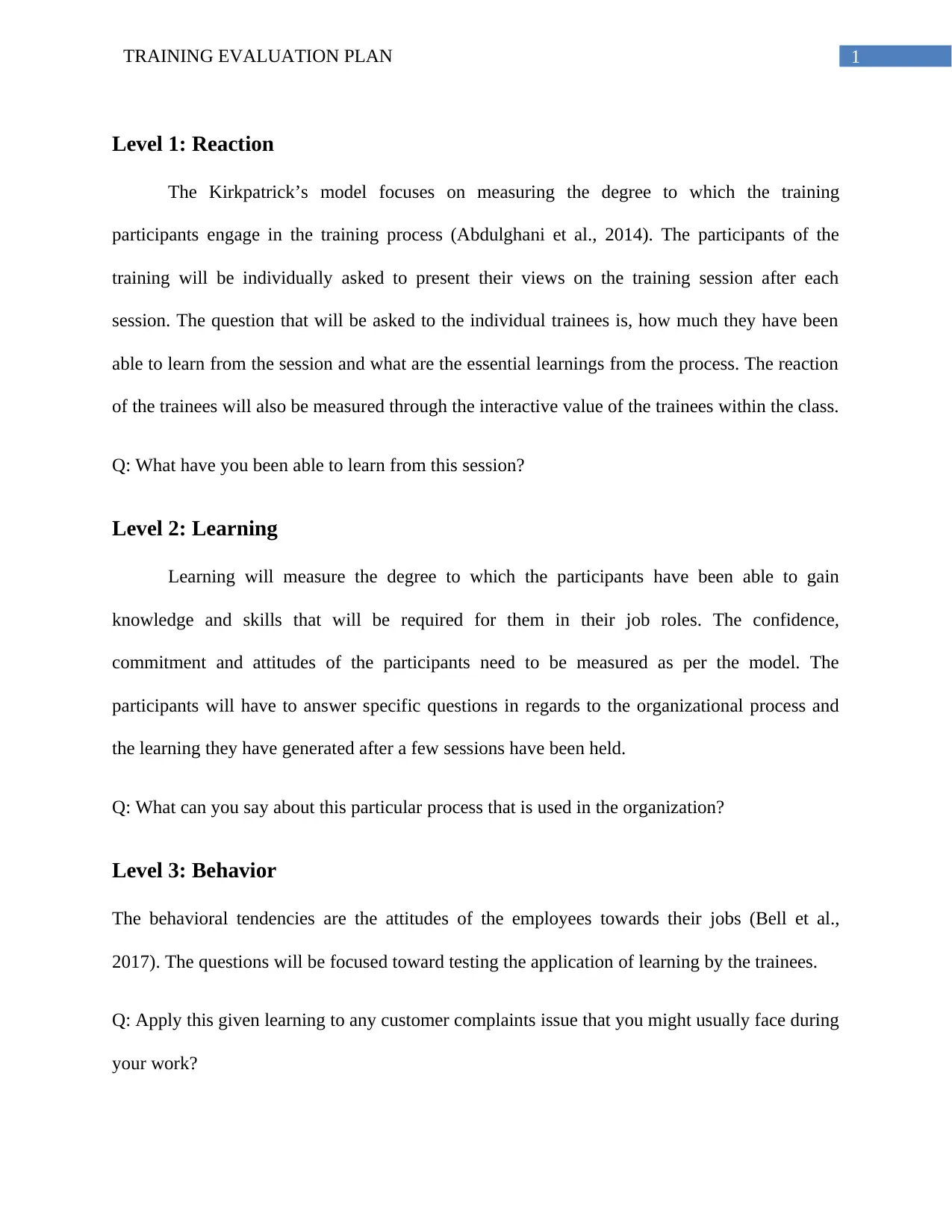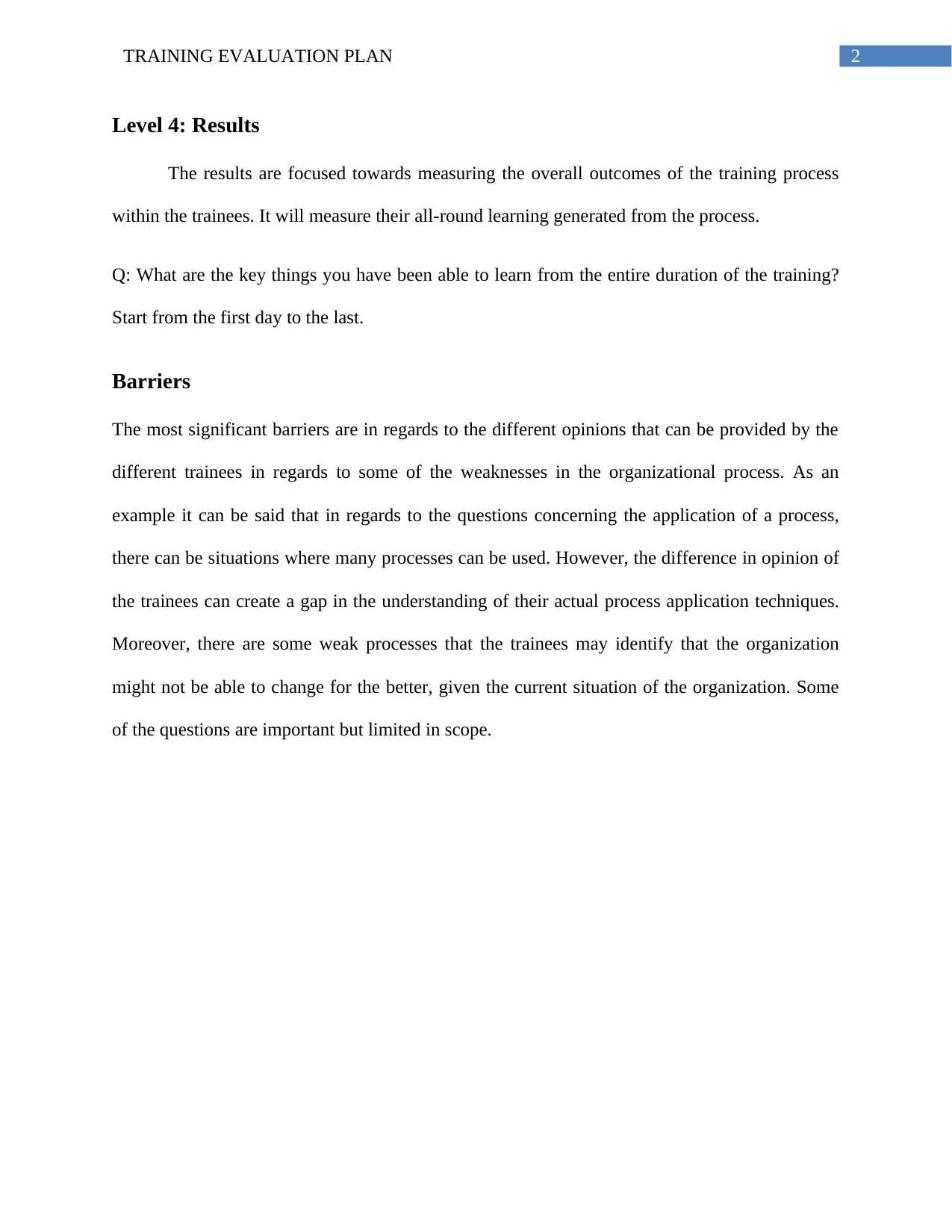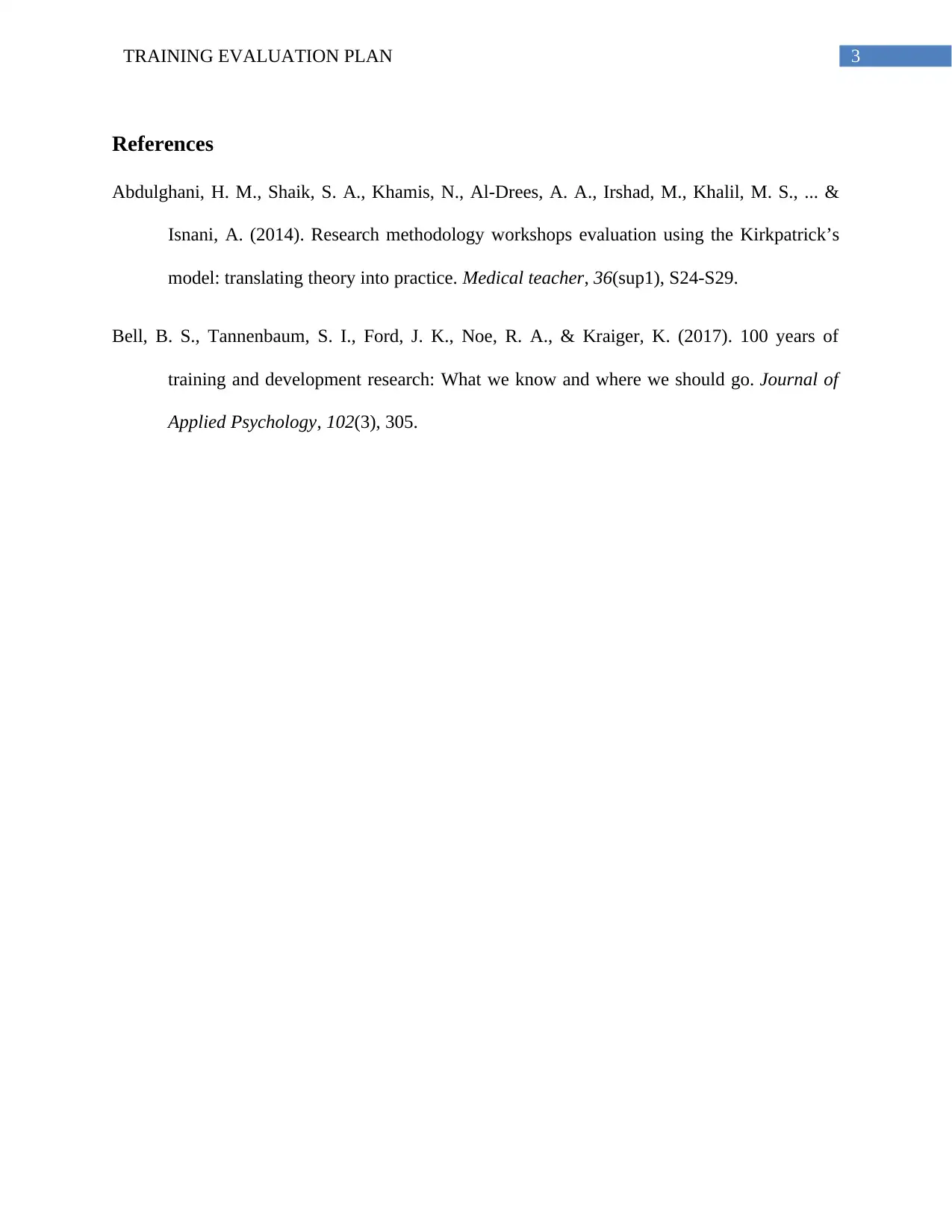Training Evaluation Plan: HRMT 160 Training & Development, F2018
VerifiedAdded on 2023/05/30
|4
|619
|182
Report
AI Summary
This training evaluation plan utilizes the Kirkpatrick model to assess the effectiveness of a training program. It focuses on four levels: reaction, learning, behavior, and results, with specific questions designed to gauge trainee engagement, knowledge acquisition, behavioral changes, and overall outcomes. The plan also addresses potential barriers to effective training evaluation, such as differing trainee opinions and limitations in organizational processes. The document provides a structured approach to measuring the impact of training initiatives within the People’s Credit Union (PCU), as part of the HRMT 160 Training & Development course in Fall 2018. Desklib provides students access to similar solved assignments.
1 out of 4











![[object Object]](/_next/static/media/star-bottom.7253800d.svg)